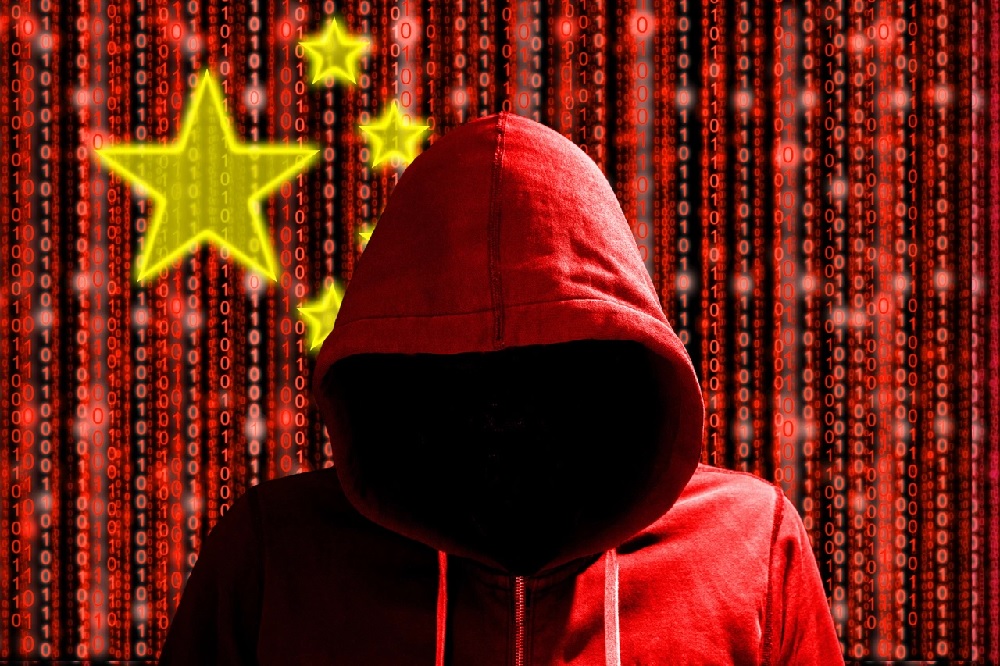In recent decades, China has risen to global prominence not by pioneering new technologies but by systematically stealing intellectual property (IP) from the United States and other democratic nations. To add insult to injury, China has used slave labor, including the forced labor of ethnic minorities like the Uighur Muslims, to mass-produce these stolen innovations at minimal costs, while funneling profits into its oppressive regime. This practice has wreaked havoc on Western economies, funding a totalitarian system that threatens global stability and human rights.
THE SCALE OF CHINESE INTELLECTUAL PROPERTY THEFT
China’s theft of American technology is staggering, and it touches almost every sector—from pharmaceuticals to defense. The FBI estimates that Chinese IP theft costs the U.S. economy between $225 billion and $600 billion annually.
- HACKING AND CYBERESPIONAGE: Chinese hackers frequently target American companies, research labs, and government institutions. In 2020, two Chinese nationals were charged for hacking into American firms to steal research on COVID-19 vaccines. These attacks extend to highly sensitive industries. In 2015, Chinese hackers breached the U.S. Office of Personnel Management, gaining access to personal data of over 22 million Americans, further illustrating the extent of China’s cyberwarfare against the U.S.
- CORPORATE ESPIONAGE: Chinese companies have consistently engaged in stealing secrets from U.S.-based firms. One notorious example involves Huawei, which has faced repeated accusations of stealing technology from Cisco and Motorola. Furthermore, in 2021, a former General Electric employee was convicted of stealing aviation technology to aid Chinese competitors.
- INDUSTRIAL ESPIONAGE IN AMERICA’S AGRICULTURE SECTOR: Even agriculture isn’t safe from China’s espionage. Genetically modified seeds—a multi-billion-dollar industry—have been targeted by Chinese spies. In 2022, a Chinese scientist working for Monsanto was charged with stealing proprietary agricultural technology with the intention of creating a rival Chinese corporation. The theft of seeds may seem small-scale compared to defense technology, but it represents a clear attempt to undermine American agricultural dominance, further broadening China’s economic reach.
COPYING MILITARY DESIGNS: China’s military is infamous for reverse-engineering U.S. technology. The J-20 stealth fighter, for example, closely resembles the American F-35, which raises concerns about how much of China’s military growth is fueled by stolen designs from U.S. defense contractors like Lockheed Martin and Raytheon.
SLAVE LABOR: THE FOUNDATION OF CHINA’S PRODUCTION MACHINE
China doesn’t just steal ideas—it uses slave labor to cheaply mass-produce them. This practice has allowed China to dominate global manufacturing, undercutting democratic nations’ industries that adhere to basic human rights standards.
- UIGHUR FORCED LABOR IN XINJIANG: Over a million Uighur Muslims have been detained in re-education camps and forced to work in factories producing cotton, electronics, and textiles—many of which are sold by major Western brands. Investigations have linked companies like Nike, Apple, and H&M to supply chains involving forced Uighur labor, although several have since pledged to cut ties with these factories.
- WORKER EXPLOITATION OUTSIDE XINJIANG: Even outside of the re-education camps, China’s labor practices are appalling. For example, Foxconn, a manufacturer for Apple, has long been criticized for its inhumane working conditions. In 2010, 14 workers committed suicide at Foxconn’s factories due to extreme working conditions, further highlighting China’s labor abuses.
- ENVIRONMENTAL EXPLOITATION: Chinese factories, notorious for poor environmental practices, contribute significantly to global pollution. In 2020, China was responsible for 27% of the world’s carbon emissions, largely due to its unregulated industrial output. The low-cost production enabled by these environmentally harmful practices also allows China to undercut Western manufacturers.
CHINA’S OPPRESSIVE REGIME: FUNDED BY EXPLOITATION
The wealth generated by stealing intellectual property and exploiting slave labor has helped fund China’s authoritarian regime, which employs surveillance technology to monitor and control its citizens.
- SURVEILLANCE STATE: China uses profits from its unfair economic practices to build mass surveillance systems that track its citizens’ every move. Huawei, implicated in IP theft, also plays a role in developing these technologies. The Chinese government uses facial recognition, AI, and data collection to suppress dissent, especially in regions like Xinjiang.
- EXPORTING AUTHORITARIANISM THROUGH THE BELT AND ROAD INITIATIVE (BRI): China’s Belt and Road Initiative is a tool for exporting authoritarianism. By funding infrastructure projects in developing countries, China traps them in debt, forcing political and economic concessions. A notable example is Sri Lanka, which was forced to hand over control of its strategic Hambantota Port after defaulting on loans from Chinese banks.
- UNDERMINING DEMOCRACIES: China’s economic strategy of stealing technology and exploiting labor weakens Western economies and threatens democratic governance. By flooding global markets with cheap, mass-produced goods, China undercuts Western manufacturers, leading to job losses and economic instability in democratic nations.
THE IMPACT ON DEMOCRATIC NATIONS
China’s actions have had a devastating impact on Western economies, particularly the United States.
- MILLIONS OF JOBS LOST: By producing goods at a fraction of the cost, thanks to stolen technology and exploited labor, China has driven millions of Americans out of work. U.S. industries, especially manufacturing and technology, have been decimated as factories shut down due to competition from China.
- EROSION OF INNOVATION: When China steals American ideas, it diminishes the incentive for U.S. companies to invest in research and development. Why invest in new technologies if they are just going to be stolen and reproduced in China for a lower cost? This stifles innovation and hurts America’s competitive edge in the global economy.
- FUNDING AUTHORITARIANISM: Every time Western consumers buy cheap goods made in China, they are inadvertently funding the Chinese Communist Party. The CCP uses this wealth to expand its surveillance state, build military power, and extend its influence over other nations.
CONCLUSION: WHAT CAN BE DONE?
The global community must act decisively to stop China’s rampant intellectual property theft and labor exploitation. Democratic nations must work together to hold China accountable for these practices.
- SANCTIONS AND TRADE RESTRICTIONS: Imposing stronger sanctions on Chinese companies involved in IP theft and forced labor is a necessary first step. Restricting access to Western markets will pressure the Chinese government to reform.
- STRENGTHEN IP PROTECTIONS: The U.S. and its allies need to bolster international IP protections and enforce stricter penalties on companies and nations that violate them. This will help prevent further theft and protect innovation in democratic nations.
- SUPPORT ETHICAL MANUFACTURING: Consumers and governments must shift their purchasing habits toward companies that follow ethical labor practices. By reducing reliance on cheap Chinese goods, democratic nations can weaken China’s economic grip and challenge its authoritarian model.
China’s rise has come at the expense of human rights, innovation, and global stability. Without a unified global response, the world risks further erosion of democratic values and the rise of a totalitarian superpower.




